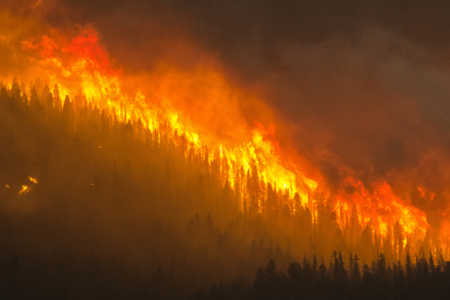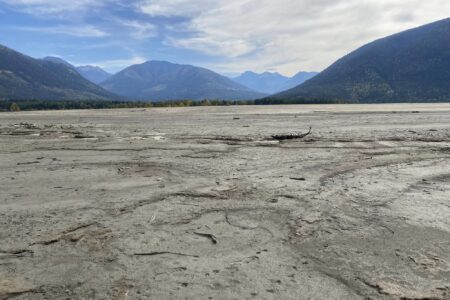The significant role of forests in regulating global climate
By David A Gabel, ENN
A new study published in the journal, Science, has quantified the forests’ role in regulating carbon dioxide (CO2) levels in the atmosphere.
Because plants absorb CO2 as part of their metabolism, the greater the forest, the more CO2 is removed, and the impact of global climate change is decreased.
The study found that the world’s established forests remove 8.8 billion tons of CO2 from the atmosphere per year. This equates to nearly one third of all annual fossil fuel emissions from humans.
Forests are areas with a high density of trees which hold a diverse ecosystem. They cover about 30 per cent of all land area on Earth.
Before the spread of agriculture and human development, they covered up to 50 percent of the land. Much of the woodland is found in a tropical band around the equator, and in the northern latitudes.
Because the trees go dormant during winter in the north, their CO2 consumption lessens, creating a yearly wave-like pattern. The study took this into account when measuring total tons of CO2 removed.
In the tropics, where plant life is most abundant, changes to the forest have a dramatic effect. The regrowth of trees on previously deforested land consumed six billion tons of CO2 per year between 1990 and 2007.
However, the deforestation in the tropics released an astounding 10.8 billion tons per year, significantly contributing to the rise of CO2 levels in the atmosphere.
By way of comparison, annual fossil fuel emissions from human sources are roughly 28 billion tons per year of CO2.
The study puts a new emphasis on the role of forests in addressing global climate change.
“Humans are altering the world’s forests in a number of ways, from their outright destruction to the much more subtle impacts on even the most remote forests caused by global changes to the environment,” said Dr. Simon Lewis, co-author of the study and tropical ecologist from the University of Leeds.
“Our research shows these changes are having globally important impacts, which highlights the critical role forests play in the global cycling of carbon and therefore the speed and severity of future climate change. The practical importance of this new information is that if schemes to reduce deforestation are successful they would have significant positive global impacts, as would similar efforts promoting forest restoration.”
The researchers, led by Dr. Yude Pan of the US Forest Service, found that worldwide, forests provided a net benefit of four billion tons of CO2 absorption.
This is after factoring in the amount of CO2 released from deforested areas. They also found that forests alone are not the only ecosystems which absorb CO2 from the atmosphere.
Also, farmland, grassland, deserts, and tundra each play a role, but much less so than the forests, and even more less than the tropical forests.
“We know the tropics are the most dynamic area of the world when considering the exchange of carbon between the land and atmosphere,” said Oliver Philips, co-author and professor of tropical ecology at the University of Leeds.
“Trees grow fast in the tropics, and widespread deforestation is the norm, yet our collective research effort is smaller in the tropics than elsewhere. What we need is serious investment in monitoring the world’s tropical forests to better understand their role in our rapidly changing global environment.”
- Link to published article: http://www.sciencemag.org/content/early/2011/07/13/science.1201609.abstract


























Comments